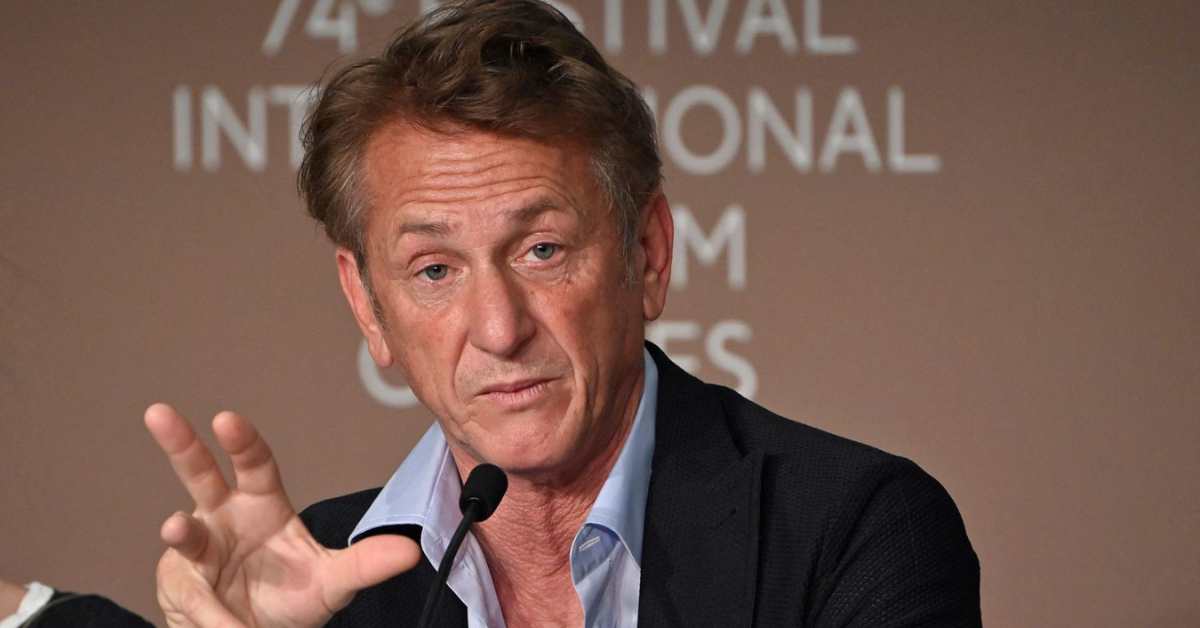Breaking: Sean Penn's Illness - What We Know Now
Is the shadow of illness forever cast over the luminaries of Hollywood? The recent speculation surrounding Sean Penns health has sparked a flurry of concern, forcing us to confront the often-hidden vulnerabilities of even the most seemingly invulnerable figures in the public eye.
The whispers began subtly, amplified by the unrelenting echo chamber of the internet and the prying eyes of paparazzi. Images surfaced, sparking a thousand whispered diagnoses, a symphony of amateur medical opinions conducted from the safety of anonymous social media accounts. The man, the myth, the Hollywood icon Sean Penn found himself the unwilling subject of intense scrutiny, his physical well-being dissected and debated with the fervor usually reserved for movie premieres or political pronouncements. The very nature of the publics relationship with celebrities, a complex dance of admiration and judgment, was laid bare, revealing the fragility of those we place upon pedestals.
Born in Santa Monica, California, on August 17, 1960, Sean Justin Penn has navigated a career marked by both critical acclaim and controversy. He is an actor, director, producer, and screenwriter. His journey through the entertainment industry mirrors a broader narrative of artistic exploration and personal transformation, marked by moments of brilliance and periods of intense public scrutiny.
| Full Name | Sean Justin Penn |
| Date of Birth | August 17, 1960 |
| Place of Birth | Santa Monica, California, USA |
| Nationality | American |
| Occupation | Actor, Director, Producer, Screenwriter |
| Notable Awards |
|
| Marriages |
|
| Children | Dylan Frances Penn, Hopper Jack Penn |
| Education | Santa Monica High School |
| Notable Films (Acting) |
|
| Notable Films (Directing) |
|
| Reference | IMDB - Sean Penn |
The entertainment industry, a realm of bright lights and relentless demands, often pushes its denizens to the brink. The pressures of fame, the constant scrutiny, and the grueling schedules can take a significant toll, both mentally and physically. The very nature of the profession, with its irregular hours, travel, and the performance demands, sets the stage for potential health challenges. Substance abuse, a sadly common thread among those grappling with the weight of celebrity, further compounds these risks.
Over the years, there have been documented instances of individuals within the Hollywood ecosystem who have battled various health challenges, ranging from mental health struggles to chronic diseases. These situations are often met with a mixture of empathy, concern, and, at times, intrusive media coverage. The publics fascination with the private lives of the famous creates a complex dynamic, where well-wishes can morph into obsessive speculation.
Penn's career has been marked by a fierce independence and a willingness to tackle challenging roles. He's never shied away from portraying complex, often troubled characters. His dedication to his craft is undeniable, a factor contributing significantly to the numerous accolades he has received. His portrayal of Harvey Milk in Gus Van Sant's "Milk," for example, was a masterclass in acting, earning him widespread critical acclaim and an Academy Award. The transformation he underwent for the role, both physically and emotionally, underscores his commitment to his art. Penn often immerses himself deeply within his characters, a process which can be emotionally and physically demanding.
Beyond his acting, Penn has also demonstrated a commitment to humanitarian efforts. He has been actively involved in various charitable causes, often putting himself in harm's way to assist those in need. His work in Haiti following the devastating earthquake, and in Ukraine during the ongoing conflict, demonstrates a dedication that transcends the typical celebrity philanthropic endeavors. Hes a figure who actively seeks to leverage his platform for positive change, and his involvement in these causes adds another layer of complexity to his public persona.
The specific nature of the concerns surrounding Penn's health remains a subject of intense, though largely unsubstantiated, speculation. The media, always eager for a compelling narrative, has fueled the discussions, publishing images and articles that, while potentially generating clicks, offer little in the way of factual accuracy. The ethical implications of such reporting are significant, raising questions about the boundaries of privacy and the responsibility of the press to report accurately and with sensitivity.
There's a significant difference between reporting on confirmed medical facts and participating in rumor-mongering. Responsible journalism should always prioritize the privacy of individuals, especially when it comes to sensitive personal matters. The focus should be on providing accurate information, rather than exploiting vulnerabilities. The line between informing the public and intruding on personal privacy is often blurred, particularly in the context of celebrity culture.
The recent scrutiny of Sean Penn's health is a reminder of the human element beneath the surface of fame. It forces us to consider the pressures that celebrities face and the emotional tolls associated with living a life under constant public surveillance. The impact of public interest on an individual's well-being is a crucial consideration, especially given the relentless reach of modern media.
The current conversation surrounding Penn underscores the pervasive influence of the internet and social media. News, rumors, and speculation spread instantaneously across the globe. The echo chambers of social media can amplify anxieties and insecurities. The speed with which misinformation can spread is a stark reality of the digital age. The unchecked nature of online discourse, with its lack of fact-checking and the prevalence of anonymous commentary, contributes significantly to the problem.
Another aspect of the current situation is the potential for a ripple effect. The discussion surrounding Penn might encourage more cautious behavior. It could lead to greater awareness of the importance of personal well-being, especially in the entertainment industry. Theres the possibility of increased empathy for those dealing with health challenges, both within and outside of the spotlight.
The entertainment industry has evolved, but the core elements of the celebrity dynamic remain. The publics fascination with celebrity culture has a long history, going back to the early days of cinema. The relationship is often based on an idealized version of individuals, who, in many ways, are treated as larger than life. The reality, however, is that celebrities, like all human beings, are subject to the same vulnerabilities and health risks.
Consider the case of actors like Michael J. Fox, who has bravely shared his battle with Parkinson's disease. His openness has not only raised awareness of the disease but has also inspired countless individuals to seek help and remain optimistic. The same can be said for other celebrities who have courageously discussed their health battles. The impact of their honesty should never be underestimated.
The public discourse concerning Sean Penn's health should serve as a call for greater empathy, particularly as it comes to those in the public eye. Respecting privacy, prioritizing accurate reporting, and refraining from speculative commentary are critical. The focus should be on promoting understanding and compassion. Perhaps, more importantly, we should remember that those we admire are, first and foremost, human.
The issue also raises critical questions about the long-term impact of chronic stress on health. Research in the fields of medicine and psychology shows a direct link between chronic stress and various health problems. The demands of a high-profile career, coupled with the constant scrutiny, can contribute to chronic stress. The challenge for those in the entertainment industry is to prioritize their mental and physical health, seeking help when needed, and cultivating healthy coping mechanisms.
The evolving understanding of mental health has also influenced this debate. As we become more aware of the importance of mental well-being, we can shift from judgment to support. Breaking the stigma around mental health is a crucial step. This approach can help facilitate open conversations and reduce the tendency to speculate. The entertainment industry, with its focus on talent and performance, has a vital role to play in fostering a culture of mental wellness.
The future of the conversation surrounding celebrities' health depends on several factors, including the level of media responsibility and the growing awareness of the importance of mental and physical well-being. The potential for change lies in the capacity to approach these discussions with sensitivity, respect, and a commitment to accurate reporting.
Ultimately, the discussion surrounding Sean Penn serves as a microcosm of a much larger societal conversation about health, privacy, and the complexities of celebrity culture. It demands that we approach the lives of those in the public eye with thoughtfulness and understanding. It reinforces the importance of empathy and the recognition that the human condition is shared by all, regardless of fame or fortune.


